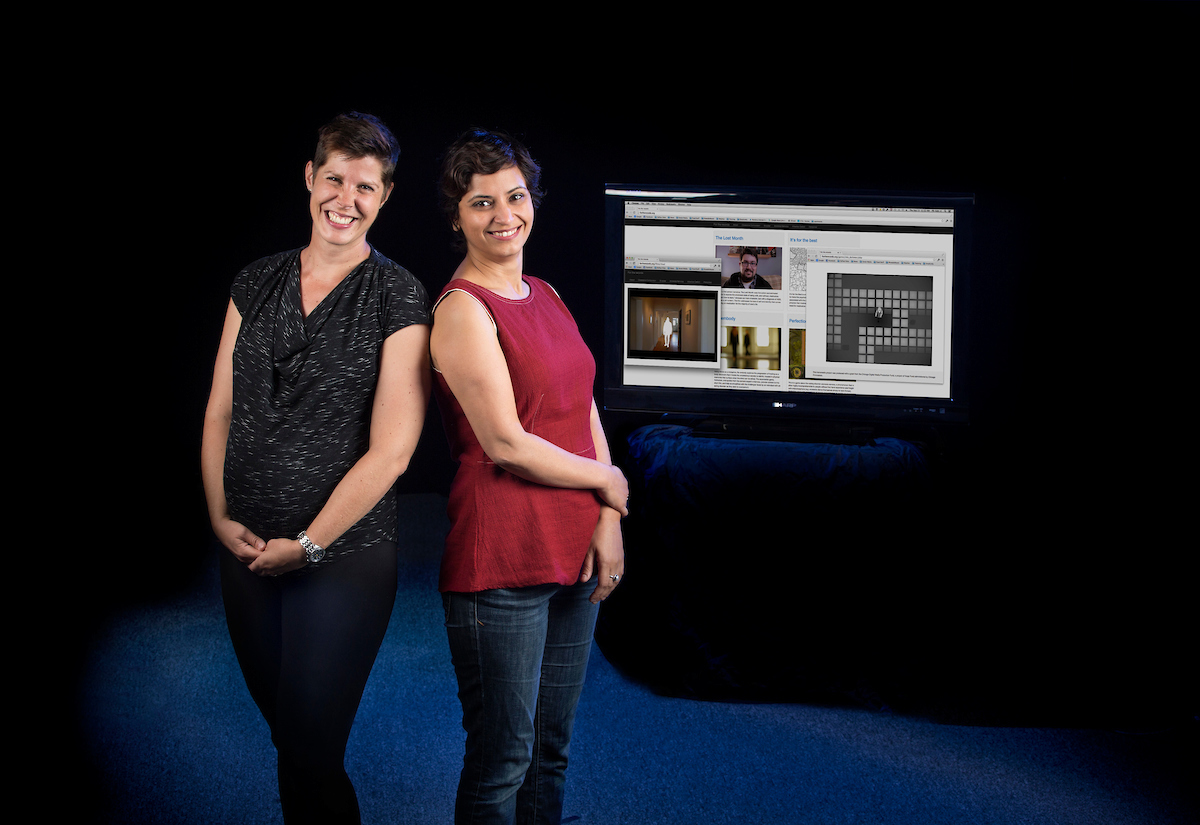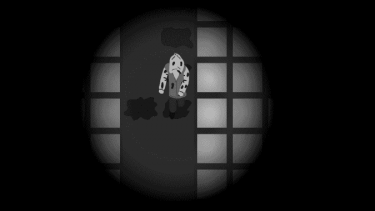 Game designer Doris Rusch (left), and filmmaker Anuradha Rana, both of DePaul University's College of Computing and Digital Media, teamed with students and DePaul's School of Nursing to create a website that helps people understand the issues faced by those struggling with mental health disorders. (DePaul University/Jamie Moncrief)
Game designer Doris Rusch (left), and filmmaker Anuradha Rana, both of DePaul University's College of Computing and Digital Media, teamed with students and DePaul's School of Nursing to create a website that helps people understand the issues faced by those struggling with mental health disorders. (DePaul University/Jamie Moncrief)
According to the
National Alliance on Mental Illness, one in four adults -approximately 61.5 million Americans -experience mental illness in a given year. Suicide is the tenth leading cause of death in the U.S. Approximately 60 percent of adults with mental illness received no mental health services in the previous year.
These statistics and more motivated Doris C. Rusch and Anuradha Rana, faculty in the College of Computing and Digital Media, to begin a project aimed at lowering some of the crippling stigma that surrounds mental illness. Rusch has a background in creating video games about human experience. Rana is experienced in documentary film making, focusing specifically on people culturally outside the mainstream. In fall 2012, the two combined their expertise to begin For the Records, a website designed to help individuals on both sides of the mental illness conversation better communicate and understand disorders. Since its reveal in spring 2014, the site has received two awards and immense praise.
"There is a general lack of awareness, which is what we're trying to address," Rusch says. "If we can do something about normalizing the experience, getting [people with disorders] to talk about it and not feel ashamed, a lot could be won."
The Concept
In an age when visual and interactive content and technology have taken the lead on how people process information, a website featuring video games and documentaries was the perfect fit for what Rana and Rusch wanted to achieve. The games simulate, to the player, what it feels like to have a mental disorder. They are intended to help patients, therapists, family and friends communicate about how it feels to have a mental illness -something not easily done.
With help from students and mental health experts, the faculty members conducted research about mental health in preparation for what would become a two-year venture. They learned that the population most affected is age 17-28 -the demographic of most of their students. Common mental illnesses of this demographic are obsessive-compulsive disorder (OCD), attention deficit disorder (ADD), eating disorders and bipolar disorder, all of which are featured on the website.
After final consultations and support from CDM, development of the components began in fall 2013. The team developed a transmedia project, consisting of a video game and documentary film for the four disorders. Rana and Rusch also offered more collaboration opportunities to their past and current students. Several of the students and alumni who worked on the project experienced one or more of the disorders at some point in their lives.
In Into Darkness, players explore an ever-growing maze, a metaphorical representation of obsessive-compulsive disorder. (Image courtesy of For the Records)
"We wanted a student base working on a project aimed at helping their peers," Rana says. "It reinforced the sense of community we're trying to build."
Continued Collaborations In Into Darkness, players explore an ever-growing maze, a metaphorical representation of obsessive-compulsive disorder. (Image courtesy of For the Records)
In Into Darkness, players explore an ever-growing maze, a metaphorical representation of obsessive-compulsive disorder. (Image courtesy of For the Records)
In addition to student perspectives, Rana and Rusch wanted advice and consultation from professionals in the mental health arena. The duo recruited Professor Mona Shattell and Assistant Professor Barb Harris, both from DePaul's School of Nursing, to provide perspective as mental health care providers. The nursing school faculty gave insight from a clinical context, describing the disorders and their salient aspects. Shattell and Harris also contributed to the user experience, adding a non-gamer and non-mental health patient perspective, something the creators deemed very important.
"The purpose of the project is to communicate what [having a mental disorder] feels like and to increase overall understanding," Rusch says. "It's important that everyone, even those without gaming experience, can maneuver the aspects of the website."
The nursing faculty are currently working with Rana and Rusch on two additional studies about the website, focusing on how therapists interpret the site and how patients relate.
The End Result
In spring 2014, the team launched For the Records, consisting of four video games and four visual pieces, each focusing on a specific disorder. For example, "It's for the Best" and its film counterpart "The Lost Month" depict what it's like to have ADD. The student featured, Joseph Dean, was the lead designer and artist of the game.
In May, the Chicago Filmmakers awarded the creators the Chicago Digital Media Fund grant, which allowed them to invest more into the website. The website has won several awards, including Silver and Best in Show for a student project at the International Serious Play Awards. In August Rana and Rusch presented at the University Film and Video Association annual conference, where their concept received great feedback. Ultimately, the pair hopes to get other universities and colleges involved in the same or similar project.
To learn more about the website, play the games and watch the films, visit
fortherecords.org.